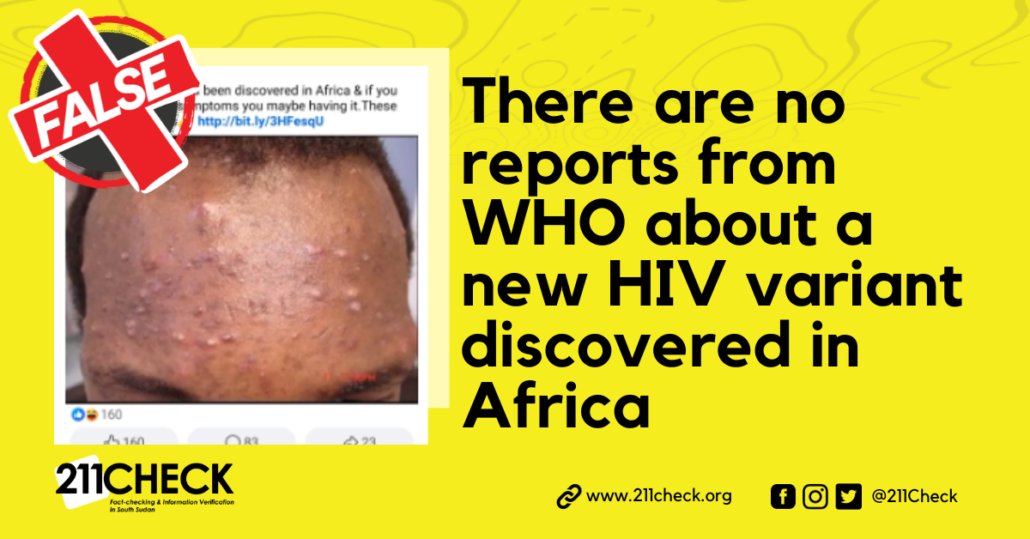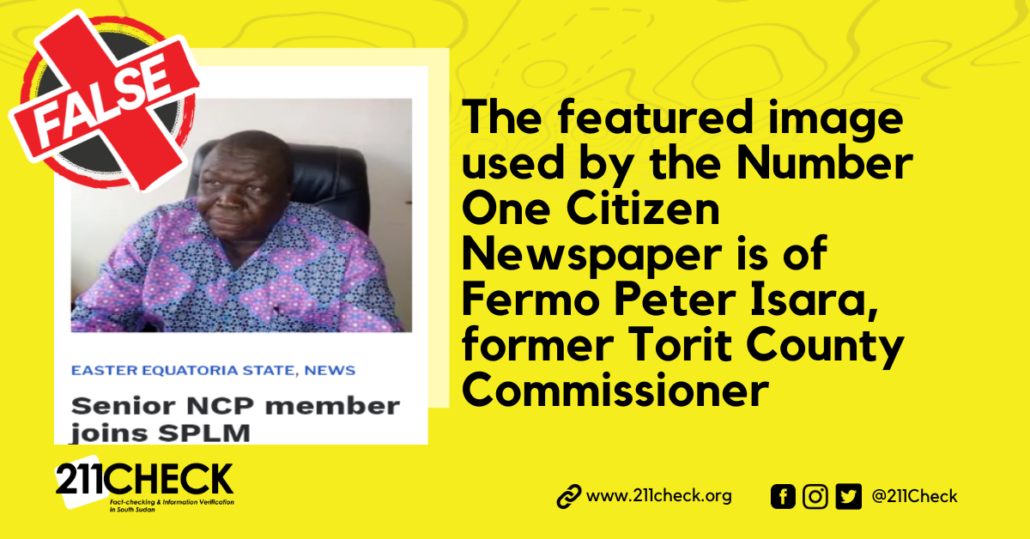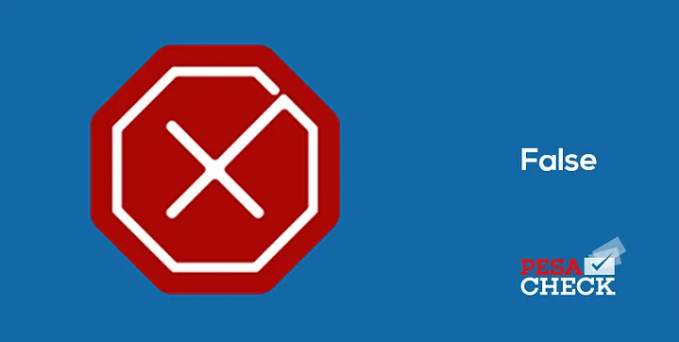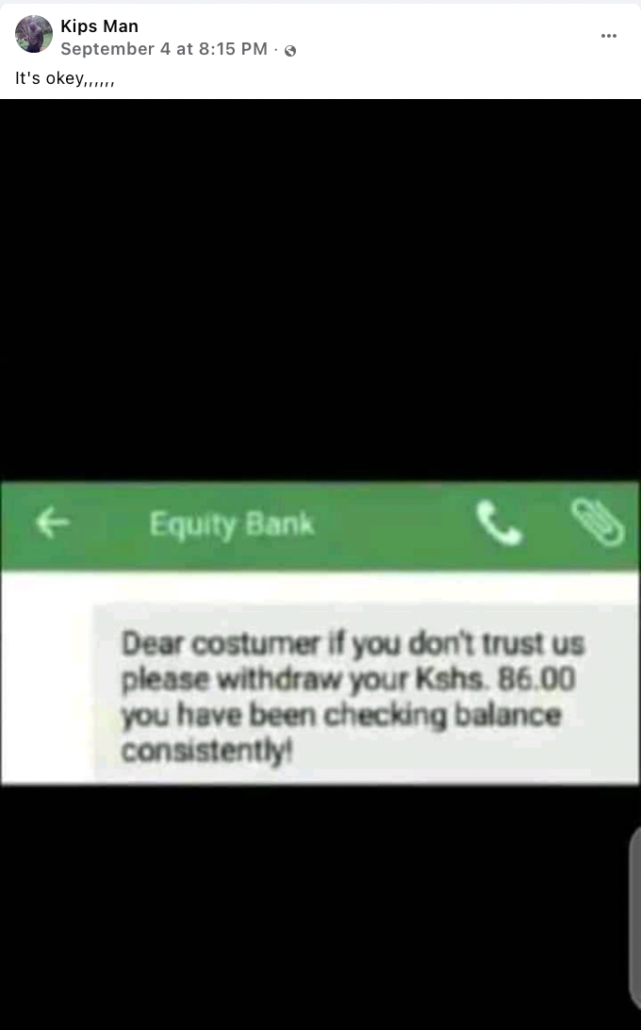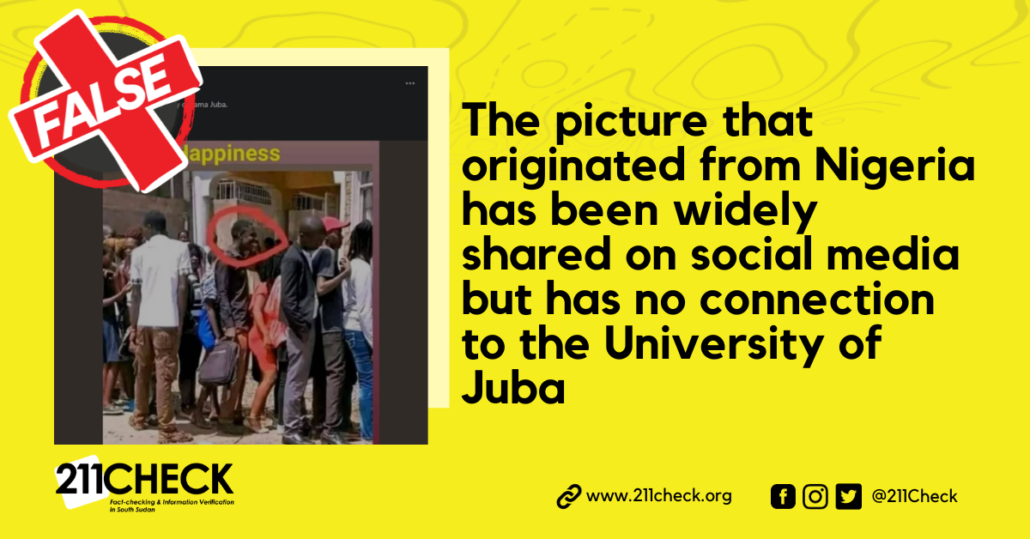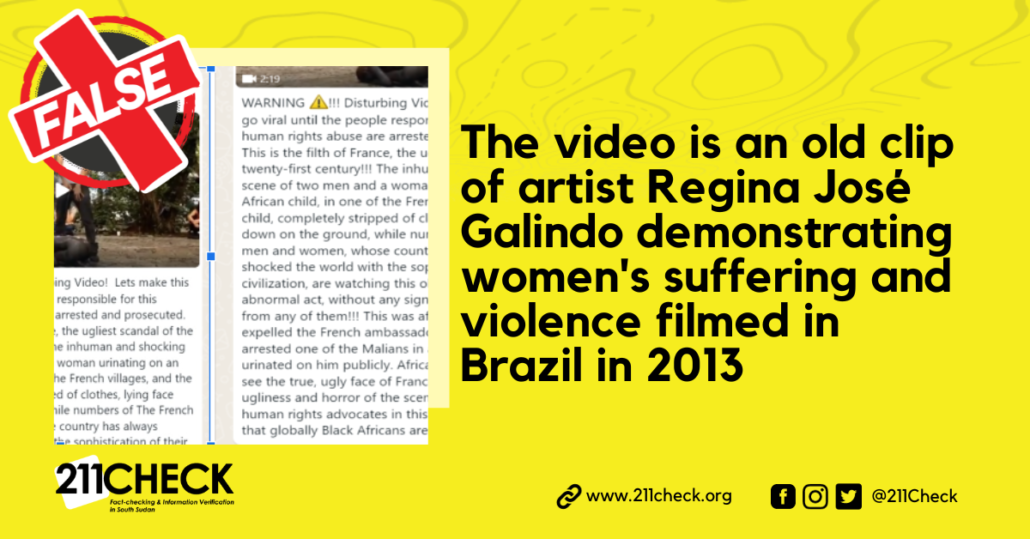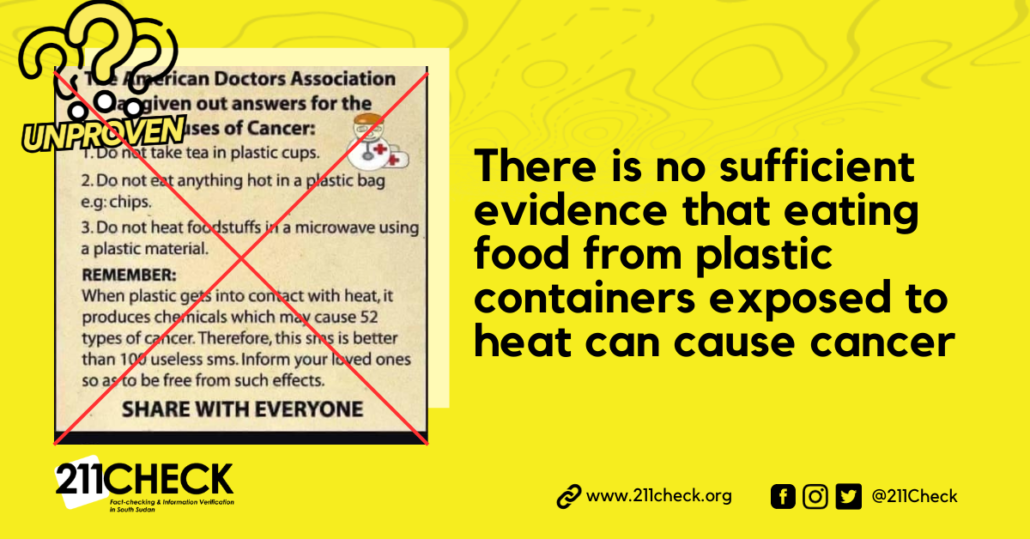Fact-check: Has a new HIV/AIDS variant that causes facial rashes been discovered in Africa?
No, there are no reports from WHO about a new HIV variant discovered in Africa.
Writer: Abraham Athian
A picture in a Post shared by Tikambeko News claims, “A new HIV variant has been discovered in Africa, and if you have any of these symptoms, you may be having it,” but this is false.
This is the URL to the false article.
It is a form of health misinformation that scares the public on social media and those who have acne on their faces. The attached picture in the post is of a person with acne, not a new HIV variant, as claimed by the imposter. The picture has been online since 2014.
A screenshot of the Facebook post
The post attracted 160 likes, 83 comments, and 23 shares. Many media outlets also posted it, as you can see here, here, here, here, and here.
Claim Verification:
A Google search engine shows that the picture first appeared online on June 12, 2014. It was shared by WordPress that Forever Living products (Aloe Vera Gelly and Aloe Propolis Creme) are used to treat acne.
A screenshot of a WordPress post
The other sources where you can find the origin of the picture are here, here, here, here, and here.
Further search for the source of this picture and the claim lands us on the previous fact-check made by Edmo Belux, a fact-checking agency in Belgium and Luxembourg. This verified the false claim made by Julius Malema Speak in South Africa about the new HIV variant. It concluded it was false by providing some evidence attached below.
A screenshot of the factual report about the new HIV variant
A screenshot of the refuted claim
A screenshot of the verified information
You can also read the full Edmo’s fact-check article written by Tendai Dube here.
The Latest Research on HIV and other infectious diseases continued to be presented at the 2023 Conference on Retroviruses and Opportunistic Infections (CROI). Dr Dieffenbach, the Director of the Division of AIDS at NIH’s National Institute of Allergy and Infectious Disease, highlighted three NIH-supported studies that focused on the effectiveness of long-acting HIV prevention in specific populations and a demonstration of how long-acting HIV treatment can be used to reach people with multiple challenges to treatment adherence. First, he discussed a study presented by Dr. Hyman Scott of the San Francisco Department of Public Health that demonstrated the safety and effectiveness of long-acting injectable cabotegravir (CAB-LA) for HIV pre-exposure prophylaxis (PrEP) among black men who have sex with men and transgender women who have sex with men, concluding that CAB-LA can be a powerful HIV prevention tool to reduce HIV incidence among these groups that are disproportionately affected by HIV.
What is acne?
Acne is a skin condition that occurs when the opening on the skin’s surface becomes clogged. Acne causes inflamed growths, which may have whiteheads or blackheads. Causes of acne can include hormonal imbalance, oversecretion of oil glands in the skin, and dirt/impurities clogging the skin pores.
Treatment:
The use of Aloe Vera Gelly and Aloe Propolis Creme can minimise the implications. This skin treatment formula has been used and validated over and over satisfactorily, with over 90% of use resulting in total transformation of troubled areas. It works on all types of acne: Blackheads, Whiteheads, Cysts, Acne Vulgaris, Conglobata, and rosacea.
Conclusion:
211 Check finds the claim that there is a new HIV/AIDS variant to be false. It is health misinformation and disinformation. The picture allegedly of a person infected with the new variant was first used in an advertisement for acne-treating medicines in 2014.
A publication under 211 Check’s ‘Fact-check for a pay’ Initiative with Support from the International Fact-checking Network through the BUILD grant.
To ensure accuracy and transparency, we at 211 Check welcome corrections from our readers. If you spot an error in this article, please request a correction using this form. Our team will review your request and make the necessary corrections immediately, if any.
It’s vital to fight misinformation and disinformation in the media by avoiding fake news. Don’t share content you’re uncertain about. False information can harm and mislead people, risking their lives—Fact-check before sharing. For more details, visit https://211check.org/ or message us on WhatsApp at +211 917 298 255. #FactsMatter

